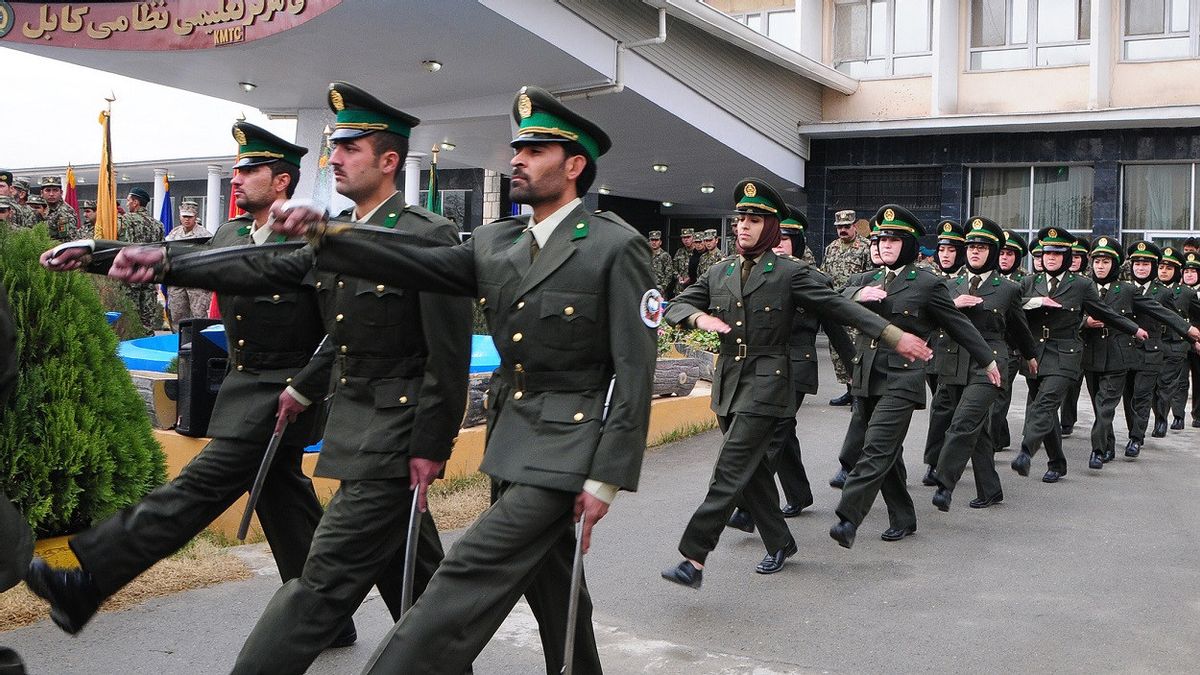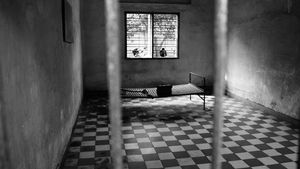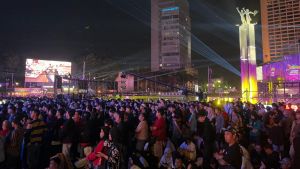JAKARTA - Tugging at the folds of a traditional hijab, two young sisters jostle and laugh to try to get their mother's attention as she fry onions on the stove.
Together with their 6-month-old sister, the girls are unaware of the threat they now face from the Taliban, Afghanistan's new rulers.
Their mother, Nabila, is one of 250 female judges ordered not to return to work by a regime that does not condone women in senior positions. Citing CNN Monday, September 20, mentioning only his first name is intended to protect him.
Nabila says she fears reprisals, not only from fundamentalists, but also men she has imprisoned. When they came to power, the Taliban opened the prison gates, freeing thousands of convicted criminals.
"Now we don't feel safe, the same criminals are after my own life, my family's life. God forbid if they take revenge," said Nabila.
After the Taliban takeover in mid-August, dozens of female judges fled Afghanistan. Meanwhile, those left behind are now in hiding, according to Judge Vanessa Ruiz of the US-based International Association of Women Judges (IAWJ).
All judges who worked under the former Afghan government, men and women, have now been replaced by Taliban-appointed persons, two judges told CNN.
However, Ruiz said female judges were concerned about their gender, becoming a particular target for a regime that places greater value on men. In fact, many female judges preside over the worst cases of violence against women, including rape, murder and domestic violence.

"They will be angry at any judge who convicts them. But, a woman has official authority, and sitting in the judgment of a man, is the anger of a completely different order," said Ruiz.
The IAWJ and other organizations are racing to find safe escape routes for women, though they say they need more help from the US and other Western countries, before it's too late.
"They can't see their mother being killed," Ruiz said.
Prior to the Taliban's takeover of Afghanistan, female judges also had a stake in the previous administration.
In January, two Supreme Court judges were shot dead in Kabul by unidentified gunmen, although the Taliban denied responsibility, citing Reuters.
Since then, the threat to Afghan women, and those affiliated with the previous government, has increased.
Last week, the UN High Commissioner for Human Rights Michele Bachelet told the Human Rights Council his office had heard "many allegations" about the Taliban conducting door-to-door searches, looking for specific people and who had worked with the US.
She further said women had been progressively excluded from the public sphere, facing increasing restrictions in "many professional sectors. Nabila said it wasn't long before she received death threats.
"A day or two after the Taliban arrived in Kabul, my personal number was dialed and I was threatened with revenge, threatened with death," Nabila said.

He changed his phone number, and his family now moves from house to house every few days to avoid being tracked.
Another judge, Bibi, has been hiding with her three young children since the Taliban entered Kabul.
"My worst fear is my children, they can't see their mother being killed," said Bibi, who only uses her first name for security reasons.
"We haven't slept well, we haven't eaten well. We're just waiting, we've stopped living like normal humans."
Bibi had to leave her workplace in a hurry because Kabul had fallen and was unable to return to her office, which contained all her work files and personal information, including her photo, phone number, and home address.
He fears the Taliban, or former detainees, could use the information to track them down.
"They feel like it's their right to find me, beat me, kill me, they have no one to be afraid of."
Both Nabila and Bibi and their families are trying to leave Afghanistan with the help of organizations including the IAWJ, but progress has been slow.
Ruiz said they were doing all they could, but their resources were limited, and he urged Western countries to do more.
"The government must be better, more agile, more honest, in giving permission to people who are in danger in Afghanistan right now," Ruiz said. "You have to cut red tape when you have an emergency, and we are dealing with an emergency."

Only a few dozen female judges have managed to escape Afghanistan so far. An experienced judge managed to get off the flight from Kabul to Poland along with family members including eight nephews and nephews. But it was not an easy journey.
"I was at the airport gates for two nights with too many people, and I brought a lot of children," recalled the judge who asked not to be named to protect family members still in Afghanistan.
"The three days and two nights I had at Kabul Airport were really the worst nights of my life but we made it through. I had no (other) hope of survival," he continued.
He knew he had to flee the country after the Taliban tried to track him down.
"Five Taliban people came to my area asking my neighbors about me. When I found out the Taliban were after me, I moved from that area too, because I was very scared if they found me," he said.
Apart from worrying about their families, the women also grieve over their hard-earned careers.
For those trapped in Afghanistan, frustration and fear are mounting.
"We are left behind, we all express anger, disappointment. We (have) lost our right to work. We feel it is impossible for us to stay in Afghanistan," Nabila said.
Despite the dangers, Nabila is dedicated to her chosen career path and hopes to one day return to the bench.
"I do not regret all the fields that I have chosen and which I have studied over the years. We have worked for years to fight violence, oppression and injustice, and I want to continue my work," he concluded.
The English, Chinese, Japanese, Arabic, and French versions are automatically generated by the AI. So there may still be inaccuracies in translating, please always see Indonesian as our main language. (system supported by DigitalSiber.id)








